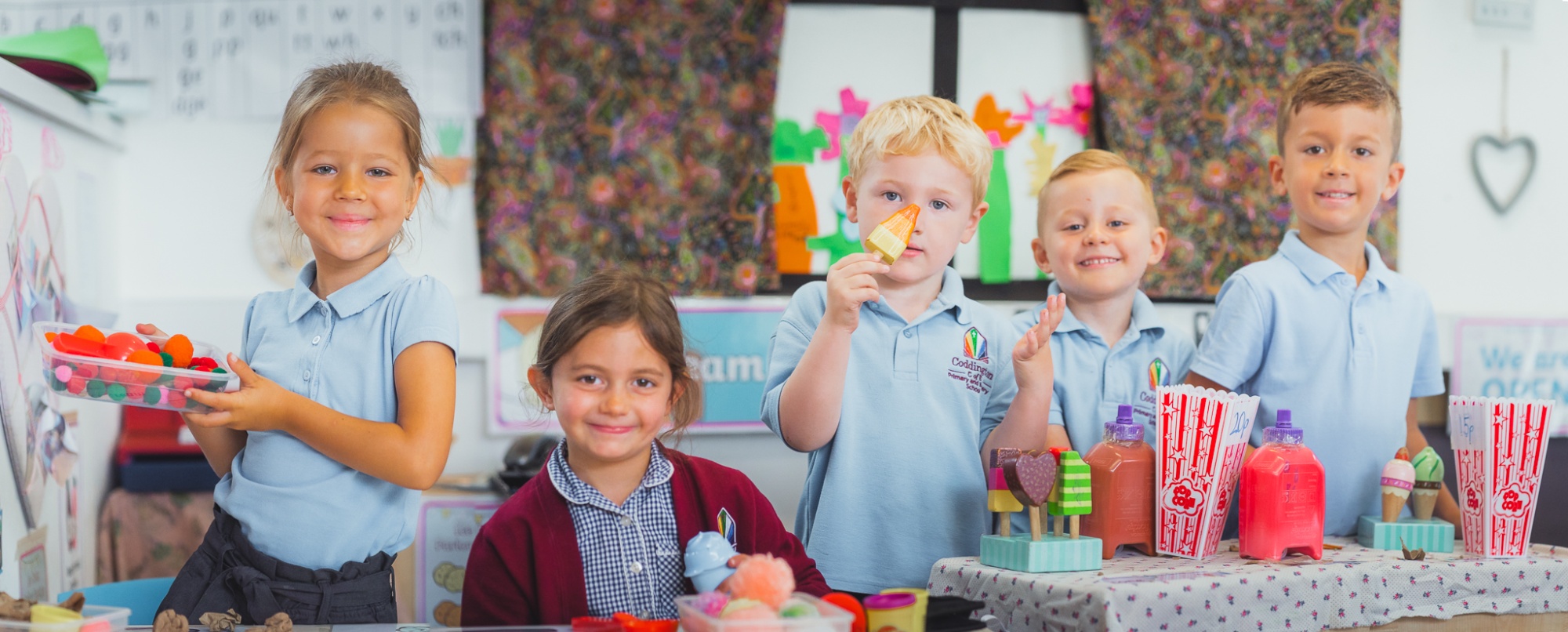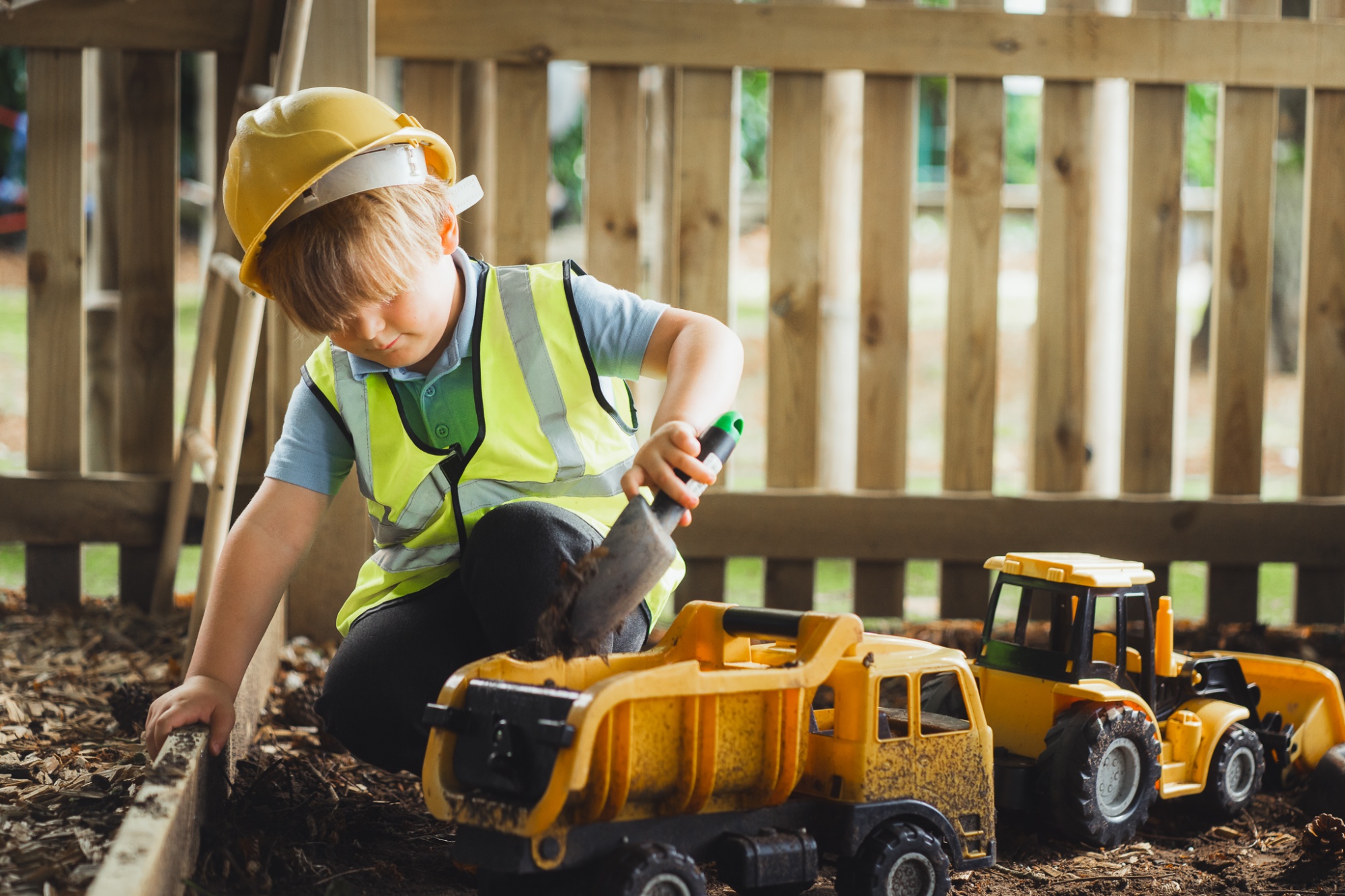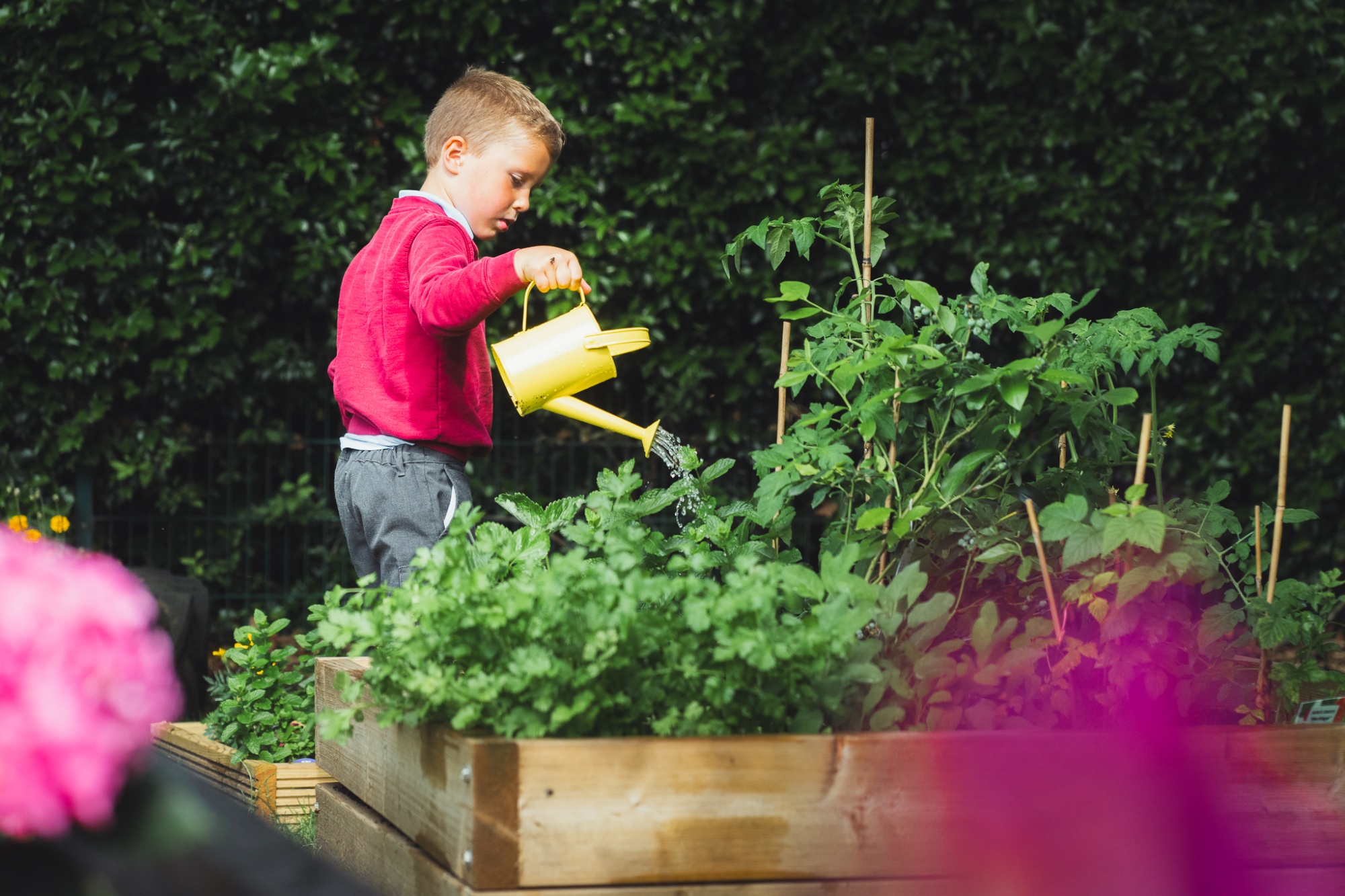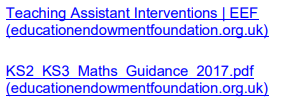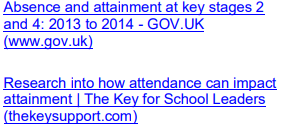Pupil Premium
Pupil Premium at Coddington Primary School
Mrs Penn is the Pupil Premium champion who can offer more support if it is felt necessary by parents/carers and class teachers. (l.penn@coddington.notts.sch.uk)
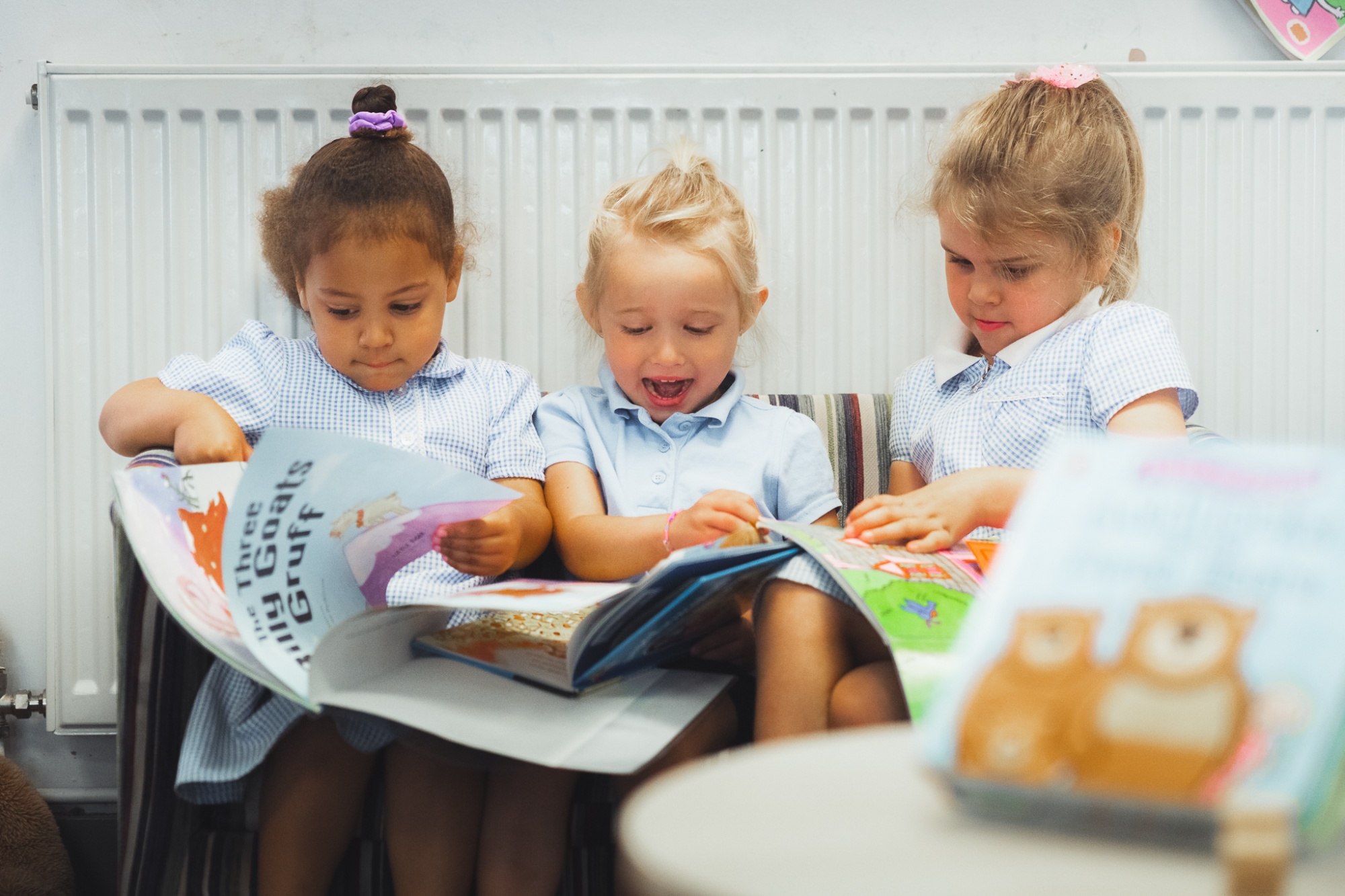
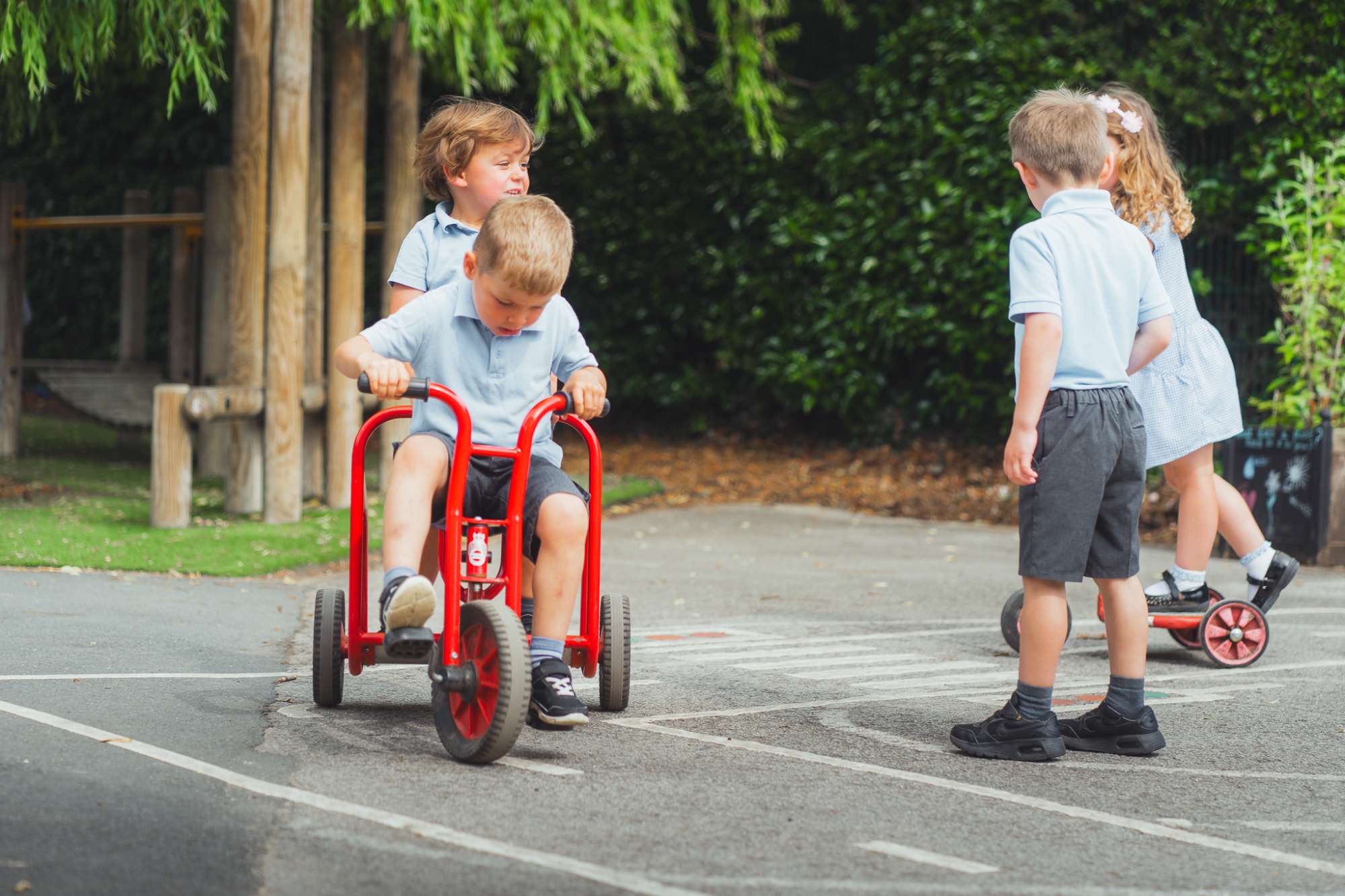
What is Pupil Premium
What is Pupil Premium?
The Government has started a scheme named Pupil Premium. This Pupil Premium is allocated to local authorities and schools with pupils on roll in January 2012 that are known to have been eligible for free school meals at any time in the last six years, also children who have been Looked After for more than 6 months and those children who are from Service families. Since December 2013 this has now been extended to children who are post looked after children and are now adopted, part of a residential order or under special guardianship.
The Government believes that the Pupil Premium, which is additional to main school funding, is the best way to address the current underlying inequalities between children eligible for free school meals and their wealthier peers, by ensuring that funding to tackle disadvantage reaches the pupils who need it most.
What is the intended impact?
Pupil’s progress is closely tracked and monitored to ensure that the next stages of learning are catered for. A suitable intervention, consolidation work or next steps to learning program is then put in place. Once the individual pupil has met the age related or above target they should be able to access their learning at a much better rate.
How is it used?
Schools have the freedom to spend the Premium, which is additional to the underlying schools budget, in a way they think will best support the raising of attainment for these pupils.
School overview
| Detail | Data |
|---|---|
|
School Name |
Coddington Primary School |
|
Number of pupils in school |
PLAC 2 FSM6 37 EYS 1 Service 10 |
|
Proportion (%) of pupil premium eligible pupils |
56 children 15% |
|
Academic year/years that our current pupil premium strategy plan covers (3 year plans are recommended) |
3 years 2024 – 2025 2025 – 2026 2026 – 2027 |
|
Date this statement was published |
December 2024 |
|
Date on which it will be reviewed |
December 2025 |
|
Statement authorised by |
Rebecca Major |
|
Pupil premium lead |
Lesley Penn |
|
Governor / Trustee lead |
PP Governor |
| Funding Overview | Amount |
|
Pupil premium funding allocation this academic year |
Service Children - £2,380 Post Lac - £7,710 EYPP £427 PP - £51,800 Total= £62 317 |
|
Recovery premium funding allocation this academic year |
£0 |
|
Pupil premium funding carried forward from previous years (enter £0 if not applicable) Just from PP budget not recovery |
£0 |
|
Total budget for this academic year If your school is an academy in a trust that pools this funding, state the amount available to your school this academic year |
£62 317 |
Part A: Pupil Premium Strategy Plan
Statement of Intent
Our ultimate objectives are:
- Provide a progressive and sequential knowledge-rich curriculum that empowers children to grow in independence and confidence.
- That all children can access the curriculum from Early Years through to Y6.
- The school offers children a wide range of experiences which helps them to develop their knowledge and understanding of the world.
- Provide a structured, sequential programme of personal development to nurture the ‘whole child’ and increase learning capacity, underpinned by mindfulness philosophy and practice.
- To raise personal aspirations and develop their self-confidence.
- All pupils can read fluently and with good understanding to enable them to access the breadth of the curriculum.
- All children to become self-motivated, enthusiastic, and creative learners keen to achieve their full potential.
- All pupils will learn independently and collaboratively.
- All children to be self-aware, sensitive, caring individuals with respect for others and the environment.
- All children should be able to form and express ideas and questions and communicate effectively.
- All pupils have the personal and social skills to be able to play an active and constructive role in society.
- All disadvantage children, including the high attainers, have access to targeted interventions in reading, maths, and writing where they are not making at least expected progress.
Challenges
This details the key challenges to achievement that we have identified amongst our disadvantaged pupils.
-
Speech and Language
Assessments, observations, and discussions with pupils indicate underdeveloped oral language skills and vocabulary gaps among many disadvantage pupils, especially after Covid lock downs. These are evident from Nursery through to KS2 and in general, are more prevalent among our disadvantage pupils than their peers.
Our Speech and Language lead has assessed our Early Years children and specific children throughout school and has identified those children who have speech and language needs, a good proportion of these are PP children.
This is also our SIP Priority 2 for 2024 to 2025.
-
Reading
Reading in our school
2021-2022
2022-2023
2023-2024
(6)
FSM6 KS2
88.9%
88.9%
66.7%
(80% for those who took the test)
FSM6 KS1
70%
60%
67%
All FSM6 KS1 children passed their phonics screening this year. We need to continue with our phonic programme but close the gap between our phonics and reading levels in KS1 and KS2.
Data shows that at KS1 there were 67% of FSM6 readers on track. Last year there was 60%. This year we also had 20% of FSM children in Y2 getting Greater Depth. The challenge is to increase the number of FSM6 children who attain Expected at KS1.
For the last 2 years in KS2 88.9% of FSM6 children have achieved Expected or above in reading. This year only 66.7% of FSM6 children achieved expected. However, as one child was unable to access the SATs tests only 5 of the PP children took the test. Of these, 80% reached the Expected level or above in reading (40% attained Greater Depth).
The challenge is to ensure all children continue to receive quality first teaching in reading, including the first 20% of readers. Interventions should be happening for all children who have not made expected progress or who have not reached their expected level.
A teaching assistant works 5 afternoons a week with the first 20% of readers in Year 4, 5 and 6. Baselines and regular assessments are also kept. Another teaching assistant also works with the first 20% of readers in Year 3.
-
Maths
Maths results in our school
2021 to 2022
2022 to 2023
2023 to 2024
(6 children)
FSM6 KS2
44.4%
77.8%
50% (60% for those who took the SATS tests).
FSM6 KS1
70%
80%
44%
Above are the results for the last 3 years following the implementation of our new maths scheme.
The first challenge is to look at maths progress in KS1 and to make sure that progress improves. The children moving from Y2 to Y3 will need to have extra maths interventions to move more children into the Expected level.
The challenge for the next three years is to continue the progress made in the first and second year of using the new maths scheme in KS2. The target is to get at least 70% (something we achieved in 2022 to 2023) at expected by 2027. This is above national level for FSM6. Last year, 60% of the children who took the SATs tests achieved the Expected level. FSM6 children’s levels will continue to be monitored closely to aim for 70% at Expected.
-
Writing
Writing had been identified as a focus within the school and is priority one in this year’s SIP (2024 to 2025). A new writing scheme has been brought this year and is being used across the school. Foundation Stage also has its own new writing scheme. Writing in KS1 has slowly improved over the 3 years.
In KS2, our challenge is to get to at least 75% at Expected by 2027. This year our challenge is for 66% of our FSM6 children to be Expected by the end of the year and 14% at Greater Depth.
Writing in our school
2021 to 2022
2022 to 2023
2023 to 2024
FSM6 KS2
44.4%
55.6%
50%
FSM6 KS1
60%
60%
67%
-
During a previous INSET day, teachers completed a barrier to learning audit, they also completed observations, and had discussions with parents where they have identified some children with an emotional and social need. Parents have also contacted school to inform us of their child’s emotional or social need.
This is also Priority 3 on our SIP. -
Attendance
“Poor attendance at school is linked to poor academic attainment across all stages.” EEF Guide
Through analysing the data and conversations with staff, lateness was highlighted as a concern for many of our disadvantage pupils. Some PP children also had poor attendance. Our Family Engagement Officer has been working with targeted families to improve attendance and lateness.
By 2027 attendance of PP children should be in line with non-PP children. - Use an adaptive teaching approach to make the curriculum accessible to all children, including those with complex needs. To also introduce our adapted curriculum to our most complex children, including our life skills programme.
Intended Outcomes
This explains the outcomes we are aiming for by the end of our current strategy plan, and how we will measure whether they have been achieved.
| Intended Outcome | Success Criteria |
|---|---|
|
Speech and Language |
The Speech and Language lead offers regular interventions to children who have been assessed as having significant gaps in with their speech. Speech and Language assessments show that identified children are making progress and moving up levels. The Speech and Language lead trains TAs to deliver some of the speech and language interventions. |
| Improve reading |
All children receive quality first teaching. Teaching Assistants work with first 20% to support reading. By July 2027 85% of our KS2 PP children will be reading at expected level or above. This level was surpassed in Year 2 of the previous strategy, but not in Year 3. To continue to have at least some Greater Depth PP readers. |
|
Improve writing attainment for disadvantage pupils. |
All children receive quality first teaching. There is also evidence of interventions taking place and these lead to an improvement in writing levels for disadvantage pupils, so they are closer to school expectations. A TA was employed to deliver extra writing interventions. Progress is monitored every half term through keeping assessments, moderating children’s writing and through progress in No More Marking. This year, a new writing scheme has been introduced across the school. The new Writing lead will be monitoring the implementation of the new scheme across both key stages. The Early Years introduced a new writing scheme during the previous year. At least 66% of the FSM6 to reach Expected in writing at the end of KS2 (2024 to 2025). |
| Improved maths attainment for disadvantage pupils. |
All children receive quality first teaching. Regular interventions take place across school and termly assessments are being used to monitor and evaluate progress. Most interventions are pre-teaching. By 2023-2024 KS1 and KS2 maths levels for disadvantage pupils were close to National Expectations. Now the challenge is to close the gap between non FSM6 and FSM6 children. By 2027 80% of our PP should be at Expected or above at KS2 (80% of this year group were Expected in KS1). |
|
To achieve and sustain improved wellbeing for our disadvantage children. |
The outcome would be that pupil questionnaires show wellbeing has improved. Evidence would also show that enrichment activities have taken place and have had a positive effect on the children’s wellbeing. Regular ELSA sessions would have taken place to support vulnerable children. That 5 afternoon ELSA sessions take place each week. There are regular termly meetings with the PP lead and the ELSA lead. A weekly Nurture group supports our most vulnerable children, and a pupil questionnaire shows that children benefit from these sessions.
Our Family Engagement Officer improved lines of communication with parents and they were offered support or were directed to where they could receive the support they needed. The Family Engagement Officer did daily check ins with our vulnerable children, checking attendance and the children’s wellbeing. There were also weekly meetings between the PP lead and the Family Engagement Officer. All staff trained on Trauma Informed practise. |
|
Attendance To improve attendance and punctuality for our PP children. |
By 2027 attendance and punctuality for PP children will be in line with all children in our school. Attendance and punctuality greatly improved. Absences should be less than 6% and persistent absences should be below 10%, closing the gap with the non-PP children. |
|
To develop an adaptive teaching approach across school and to develop an adapted curriculum for our most vulnerable disadvantage children. |
Continue to implement our new Coddington Adapted Curriculum to support the most disadvantage children across the school so that all children have access to a wide and ambitious curriculum. The staff followed the adaptive teaching approach, and this was seen through observations, planning and book looks. Monitoring showed that all the staff were using the adaptive teaching approach and where appropriate some of our most vulnerable children accessed the Coddington Adapted Curriculum and the Life Skills programme. |
Activity In This Academic Year
This details how we intend to spend our pupil premium (and recovery premium funding) this academic year to address the challenges listed above.
Teaching (for example, CPD, recruitment and retention)
Budgeted cost: £26,145
| Activity | Evidence That Supports this Approach | Challenge Number(s) Addressed |
|---|---|---|
|
Ensure quality first teaching in writing, maths and reading. |
Over the last 3 years the maths and reading leads have introduced new schemes, and these are now well established in the school. Some staff meetings and INSET days will be used to support staff to fully embed these schemes across the school. CPD will be offered to staff to develop the teaching of writing. This year our English lead has brought in a new writing scheme. Staff meeting time has been given to train staff and some TAs to use this new scheme. Writing is a key whole school priority.
|
Challenges 2-4 |
|
Speech and language A part time teacher has been trained to deliver speech interventions. She has been employed one day a week to work with those children who need extra support with their speech and language skills. |
Our Speech and Language teacher leads some interventions. They also complete assessments and passes on reports to the class teacher and the PP lead. They will do interventions for children who are significantly behind their age in speech and language skills. The Speech and Language lead will also train other TAs to deliver some speech interventions. The lead will send a report to the class teacher which contain suggestions for activities that the children could do in their class. Activities may also be sent home to parent so they may carry out exercises to support their child’s speech. |
Challenge 1 |
| PP lead has time to carry out their role of coordinating and monitoring PP across the school. | Time for Pupil Premium lead to plan, monitor and evaluate the strategy. |
Challenge 1-7 |
| Adapted curriculum |
Last year we introduced an adapted curriculum and an adaptive teaching approach so that all our children have access to all areas of the curriculum. This year it will be monitored by subject leads and then they will feedback to the PP and SEND leads. An evidence-informed approach to… | Durrington Research School |
Challenge 7 |
| Trauma Informed Practise |
All staff trained on the Trauma Informed Practise. Trauma Informed Short Term Managed Intervention Centres - pilot | EEF |
Challenge 5 |
Targeted academic support (for example, tutoring, one-to-one support structured interventions)
Budgeted cost: £13,500
| Activity | Evidence That Supports This Approach | Challenge Number(s) Addressed |
|---|---|---|
|
Additional writing interventions groups for all PP children. |
A TA has been employed part time to deliver writing interventions for PP children. The TA will use the same scheme for their interventions to support the learning in the classroom. Writing groups with a TA or in a small group can add an extra 4 months. |
Challenge 4 |
|
Maths’s intervention groups will take place regularly for all children who are not making at least expected progress. |
Pre and post teaching groups of no more than 6 may receive support up to 3 times a week. Teaching Assistants, when trained, have shown to make progress with intervention groups. Teaching Assistant Interventions | EEF
Improving our maths teaching and the curriculum planning in line with the DFE
|
Challenge 3 |
| Additional reading intervention groups will take place for those children who are seen to be significantly behind their peers (first 20%). |
Reading interventions can add up to 6 months extra progress( EEF KS2) Extra resources will be purchased to support the teaching of reading.
|
Challenge 2 |
Wider strategies (for example, related to attendance, behaviour, wellbeing)
Budgeted cost: £22,672
| Activity | Evidence That Supports This Approach | Challenge Number(s) Addressed |
|---|---|---|
| Staff are trained and available to support children with emotional and wellbeing issues. |
Social and emotional learning | EEF SQ (ELSA lead)and NH will work with children who are experiencing social and emotional needs. NH (Family Engagement Officer) will do a morning check in with some of our children who need extra support.
All staff to be trained on Trauma Informed Practise to support our most vulnerable children. |
Challenge 5 and 6 |
| Ensure enrichment activities are provided to develop children’s self-esteem and confidence. |
Social and emotional learning | EEF (educationendowmentfoundation.org.uk) Weekly enrichment group is provided for several our disadvantage pupils. |
Challenge 5 |
| Provide a breakfast club to improve punctuality and support some of our vulnerable families. Work with parents to improve attendance. |
Magic Breakfast | EEF (educationendowmentfoundation.org.uk) Our family engagement officer liaises with families
|
Challenge 6 |
| Improve attendance and punctuality. |
Our Family Engagement Officer liaises with families on attendance and punctuality. An evidence informed approach to… | Durrington Research School
Improving school attendance: support for schools and local authorities - GOV.UK (www.gov.uk) 1. Build a holistic understanding of pupils and families, and… | EEF |
Challenge 6 |
Total budgeted cost: £62,317 - Based on the figures above
Part B: Review of Outcomes in the Previous Academic Year
Pupil Premium Strategy Outcomes
This details the impact that our pupil premium activity had on pupils in the 2023 to 2024 academic year.
Quality first teaching to improve reading for PP children across the school.
Early Years Good Level of Development
|
Level of development |
Our School |
Nottinghamshire |
Newark |
National |
|
FSM6 (1) |
100% |
48.2% |
51.2% |
52.1% |
|
All Children |
69.2% |
67.7% |
68% |
67.7% |
Phonics
Year 1 Phonics Check
There was just one FSM6 child.
|
Phonics 2024 |
Our School |
Nottinghamshire |
Newark |
National |
|
Y1 FSM6 |
100% |
66.4% |
62.8% |
68.4% |
|
All Children |
97.8% |
81.1% |
80% |
80% |
The teaching of phonics in Year 1 has produced good results for all children. Early Years and KS1 use Read Write Inc. Regular assessments and monitoring is completed by the phonics lead. The first 20% receive extra support for a HLTA.
Phonics Recheck for Year 2

All the FSM6 children in Year 2 have passed their phonics check. Our Read Write Inc phonics teaching has produced strong results across the key stage. Hannah
All pupils at the end of Year 2
|
Phonics 2024 |
Our School |
Nottinghamshire |
Newark |
|
Y2 FSM6 |
100% |
82.9% |
86.5% |
|
Y2 All children |
92.3% |
90.5% |
91.1% |
*National – not available
In our school, all Key Stage 1 FSM and FSM6 children passed their phonics screening. Nationally only 68.4% FSM6 did and in Nottinghamshire only 66.4% FSM6 children passed.
KS1 Data
There is no data comparative data from the local authority.
|
KS1 Data 2023 to 2024 |
Reading 2022- 2023 |
Reading 2023- 2024 |
Writing 2022-2023 |
Writing 2023-2024 |
Maths 2022-2023 |
Maths 2023-2024 |
|
FSM6 Children |
60% |
67% |
60% |
67% |
80% |
44% |
|
All Y2 Children |
71.7% |
75% |
69.6% |
81% |
82.6% |
73% |
The results show that FSM6 children at KS1 are making good progress in reading and writing. In maths there is a wide gap between FSM6 children and all children at the end of KS1. This will need monitoring and extra maths support put in place for those FSM6 children moving into Y3. Closer monitoring of maths in KS1 is required to prevent this significant difference.
KS2 Data
There were 6 FSM6 children in this cohort. Half were also on the SEND register. One child was working at pre key stage and did not take part in the standardised assessment tests. One child was EAL.
Key Stage 2 Reading Data
|
Reading KS2 2024 |
Our School |
LA |
National |
|
KS2 FSM6 (6) |
66.7% (80% for those who took the SATs) |
59.7% |
62.6% |
|
KS2 All Children |
81.7% |
73.7% |
74% |
33% of our FSM6 children achieved Greater Depth for Reading.
Our Key Stage 2 data show that the FSM6 children are higher than local and national data. Fifty percent of our FSM6 children were also on the SEND register. 33% of these children also achieved Expected at KS2. 33% of the FSM6 children achieved Greater Depth at KS2, both children had not been GD at Key Stage 1. There is still a wide gap between FSM6 and the other children. In school we have a teaching assistant to works with the first 20% in reading across Year 4, 5 and 6. These interventions have shown excellent progress. Records are kept and shared with staff termly. FSM6 are closely monitored to see whether they would benefit from this intervention. There has also been extra training for the teaching of reading in the classroom. Daily reading sessions are now taking place across the school.
Across the school progress is monitored in termly pupil progress meeting. Teachers are asked about the progress of their PP children. The children’s reading levels were also monitored termly by the PP lead using Scholar Pack. When, for instance, on the Spring data, children were shown to have not made the required progress those children were targeted in the summer term interventions.
Looking at reading data across the school 11% of FSM6 children made better than expected progress moving from working towards to the expected level. 6% of FSM6 children moved from the Expected level to Greater Depth. Our PLAC children received extra support with reading.
In F1 story packs were made to excite the children about reading. These packs were given out weekly to all children.
Quality first teaching to improve maths for PP children across the school.
|
Maths KS2 2024 |
Our School |
Nottinghamshire |
National |
|
KS2 FSM6 (6) |
50% (60% for those who did SATs) |
58.8% |
59.4% |
|
KS2 All Children |
85% |
73.7% |
73% |
20% of our FSM6 children, who took the SATs, achieved Greater Depth for maths at KS2.
The small number of FSM6 children and the high portion of SEND children (50% and 1 was disapplied) has meant that our maths FSM data is lower than 2023. Of the children who took the SATs test 60% were EXP or above.
Last year, 77.8% of our FSM6 children achieved expected level. Over the last three years we have embedded a new scheme across the school and had regular staff meetings to train staff. Some year groups also do extra interventions with children who are below the expected level. The PP lead monitored progress and interventions.
Looking at maths data across the school 17% of FSM6 children made better than expected progress moving from working towards to the expected level. 6% of FSM6 children moved from the Expected level to Greater Depth. We used NFER and teacher assessment to regularly assess our children.
Quality first teaching to improve writing for PP children across the school.
|
Writing KS2 2024 |
Our School |
Nottinghamshire |
National |
|
KS2 FSM6 (6) |
50% |
57.4% |
58.8% |
|
KS2 None FSM6 (54) |
76.7% |
72.1% |
72% |
Last year, KS2 writing was moderated and levels agreed.
Looking at writing data across the school 7% of FSM6 children made better than expected progress moving from working towards to the expected level.
Last year, a Year 1 and a Year 3 teacher went on writing and vocabulary course. A Year 6 teacher also went on a Greater Depth for children’s course and then feedback to staff. The Writing lead also provided training for the TA who delivers extra writing interventions. Our PLAC received extra support with their writing. Some resources were purchased to support writing interventions.
The PP lead monitored No More Marking data and progress for PP children across the school. Half termly checks on the quality and success of interventions were carried out. The PP lead fed back to staff at staff meetings and through Key Stage leads at pupil progress meetings. Initials of children not making expected progress recorded and information passed on.
The PP lead meet with F1 about progress of their PP child and interventions they had in place for him.
PLAC
This year our PLAC were put on a Assess, Plan and Review cycle. The aim was to carefully monitor their progress, set individual smart targets and keep parents better informed of their child progress, both academic, and social and emotional.
Speech and Language
This year a teacher was trained to assess children’s speech and language levels in school. A new speech assessment programme was purchased and EYS, KS1 and some targeted children in KS2 were assessed. Resources were also purchased to support this new intervention. In the following years only EYS children and new children who are identified as having speech issues, will be assessed. After the children were assessed, the teacher then worked with the PP lead to organise speech and language interventions for identified children, PP and PLAC were prioritised.
ELSA
Over the past year, ELSA has continued to grow. We now have a second member of staff trained as an ELSA lead due to increasing demand across the school for pastoral/emotional support. Children are accessing ELSA through both 1:1 sessions and group sessions depending on their need. These sessions tend to last for 6 weeks.
ELSA sessions happened on four afternoons. On a Wednesday there are two sessions running.
The need of our children ranges from dealing with difficult emotions to supporting them with issues outside of school, including bereavement. We have seen an increase in the number of children experiencing low self-esteem and anxiety related issues.
Enrichment
Regular weekly nurture group happened throughout the year. Different experiences were planned for, including a Forest School afternoon. Support was given to some parents to help with the cost of some trips and residentials. After feedback from a PP pupil voice session, artists were invited into school to work with the children. Some children have music lessons. In the summer holidays, the PP budget paid for our most vulnerable and PLAC children to go on a week’s holiday scheme called Camp William.
Attendance
|
Autumn and Spring term 2023 to 2024 |
Absences |
Persistent 90% |
|
FSM6 Notts |
11.1% |
34% |
|
All children Notts |
6.9% |
18.4% |
|
All children National |
6.8% |
19.3% |
|
Our school FSM6 September 2023 – July 2024 |
7.9% |
18% |
|
Our school all children |
4.7% |
7.9% |
Last year, a Family Engagement Officer was employed to monitor and improve attendance across the school. This has been very successful in improving the number of absences and persistent absences. Last year, 37.9% of our PP children were persistently absent. By the end of this year, it was 18% - huge improvement.
It has proved to be more challenging to engage with all our FSM families and we have a core group who continue to be late or have poor attendance. The Family Engagement Officer (FEO) has had regular contact with these families. Meetings are offered to family whose attendance did not improve.
Any child where attendance fell below 90% was contacted by the FEO and reasons for poor attendance was discussed and issues addressed. There were 17 PP who this applied to. Next year all children who fell below 95%will be monitored.
The Family Engagement Officer also does daily (4 days) check ins with our most vulnerable children. Staff have stated that this is one of the most beneficial changes we have made as issues can be dealt with straight away. The FEO can then chase up why these vulnerable children are late or absent, or struggling with family or emotion problems. Our FEO also helps organise breakfast club or ASC support for families in need.
Service pupil premium funding (optional)
For schools that receive this funding, you may wish to provide the following information:
| Measure | Details |
|---|---|
|
How did you spend your service pupil premium allocation last academic year? |
Training for ELSA and Therapeutic conversations to support children in times of uncertainty and transition. Classroom support for pupils |
|
What was the impact of that spending on service pupil premium eligible pupils? |
Children, whose parents are in the armed services, are the top priority for our ELSA and nurture groups if they require this intervention. These children are also sometimes included in our intervention groups if they are not reaching their potential. Some of our service children are working at or close to the Greater Depth level.
|

